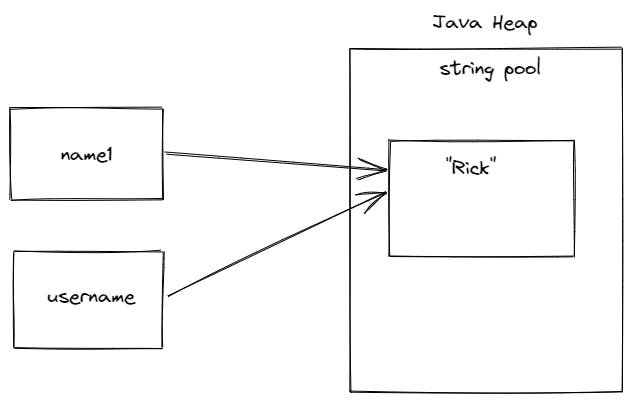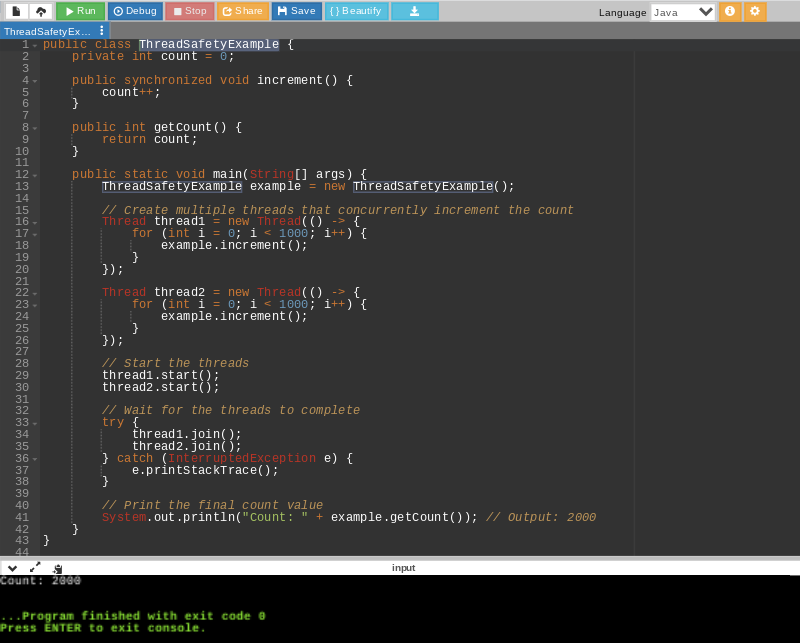Why Are Strings Immutable in Java? Enhancing Code Integrity
Why Are Strings Immutable in Java? Enhancing Code Integrity
Blog Article
Discovering the Benefits of Unalterable Strings in Modern Shows Paradigms
In the world of contemporary programming paradigms, the concept of unalterable strings stands as a cornerstone of durable software application development. By embracing unalterable strings, programmers can guarantee improved information honesty, boosted string security, streamlined debugging processes, boosted security steps, and efficient performance optimization.
Improved Data Stability

By protecting against the modification of string items, immutability gets rid of the danger of unintended changes to the information they hold. This not only enhances the protection of the info but likewise boosts the dependability of the code that depends on these strings.
Immutability also sustains safer multithreading settings, as concurrent accessibility to immutable strings does not pose the threat of information corruption with synchronised adjustments. This residential property simplifies the process of taking care of strings in parallel shows circumstances.
Fundamentally, immutability serves as a protective guard around the information kept within strings, boosting their integrity by making sure that once defined, their worths continue to be the same throughout the program's implementation.

Boosted Thread Security
Immutable strings boost the thread safety of programs by ensuring that once a string object is developed, its worth can not be modified. This residential or commercial property removes the danger of concurrent threads attempting to change the very same string concurrently, which could result in data corruption or irregular states in the program - Why are strings immutable in Java?. In a multi-threaded environment, where several threads gain access to and adjust data concurrently, the immutability of strings gives a degree of security by ensuring that the information remains unchanged throughout its lifecycle
Simplified Debugging Procedures
Provided the improved string security promoted by immutable strings, a considerable advantage occurs in the world of streamlined debugging procedures. Immutable strings, when produced, can not be changed, making it easier to map the circulation of data and recognize the resource of bugs in a program. This immutability makes sure that strings stay regular throughout the implementation of the program, minimizing the likelihood of unexpected changes that might bring about mistakes.
When debugging with mutable strings, programmers frequently come across problems where a string's value is customized unintentionally, making it challenging to pinpoint the origin of a bug. However, with immutable strings, the data continues to be the same, permitting developers to focus on analyzing the article real reasoning of the code rather than tracking down where and when a string was modified incorrectly.
Additionally, immutable strings streamline the debugging procedure by allowing easier reproduction of bugs. Considering that immutable strings do not alter state, designers can recreate and study bugs better, causing quicker recognition and resolution of problems within the codebase. This structured debugging operations eventually adds to higher software top quality and enhanced general advancement efficiency.

Increased Safety Steps
Enhancing information defense and strengthening system stability, the utilization of immutable strings in software applications contributes substantially to enhanced security measures. Unalterable strings likewise play a crucial role in preventing usual security vulnerabilities such as barrier overflows and SQL injection attacks, as efforts to adjust string information at runtime are naturally restricted.
Moreover, the immutability of strings boosts the predictability of program actions, making it easier to verify inputs and avoid unanticipated adjustments that might endanger safety. This predictability streamlines the process of bookkeeping and verifying code, enabling designers to determine possible protection loopholes a lot more successfully. Generally, incorporating immutable strings right into software advancement methods not just boosts the toughness and integrity of applications but additionally strengthens their resilience versus security hazards.
Reliable Efficiency Optimization
Structure upon the foundation of boosted safety and security actions achieved through the usage of immutable strings, a key facet to think official website about in software growth is effective performance optimization. When managing mutable strings, operations like concatenation or substring development usually cause the production of brand-new string objects, leading to memory expenses and boosted processing time. Nevertheless, with unalterable strings, these procedures can be enhanced to improve efficiency. By enabling strings to remain unchangeable and consistent, unalterable strings help with better memory management and caching possibilities, eventually increasing the overall efficiency of the software program.
Unalterable strings additionally play a critical function in multithreaded environments by promoting thread security. Why are strings immutable in Java?. Given that immutable strings can not be modified as soon as produced, they can be shared across threads without the risk of unexpected adjustments, minimizing the need for synchronization mechanisms and improving concurrency. Furthermore, immutable strings simplify debugging processes as designers can rely on that a string's value will continue to be constant throughout the program's implementation, removing potential mistakes created by mutable state adjustments. In verdict, making use of immutable strings not just boosts protection but additionally substantially adds to the efficient efficiency optimization of contemporary software systems.
Conclusion
Finally, the advantages of making use of immutable strings in modern programming paradigms can not be overstated. Enhanced data stability, improved string safety and security, streamlined debugging processes, increased protection measures, and reliable performance optimization all contribute to the general effectiveness of programming tasks. By including unalterable strings right into programming practices, designers can profit from a more durable and reliable codebase.
Immutability, a key attribute of strings in shows languages such as Java and Python, ensures that once a string item is created, it can not be modified or modified.Unalterable strings improve the string safety of programs by making certain that once a string object is created, its worth can not be changed. Immutable strings additionally play a crucial function in protecting against typical protection susceptabilities such as buffer overflows and SQL injection assaults, as efforts to control string information at runtime are inherently limited.
By why not check here permitting strings to stay continuous and unchangeable, unalterable strings assist in far better memory administration and caching chances, ultimately improving the overall performance of the software program.
Unalterable strings simplify debugging processes as developers can rely on that a string's worth will certainly continue to be consistent throughout the program's execution, getting rid of prospective errors caused by mutable state modifications.
Report this page